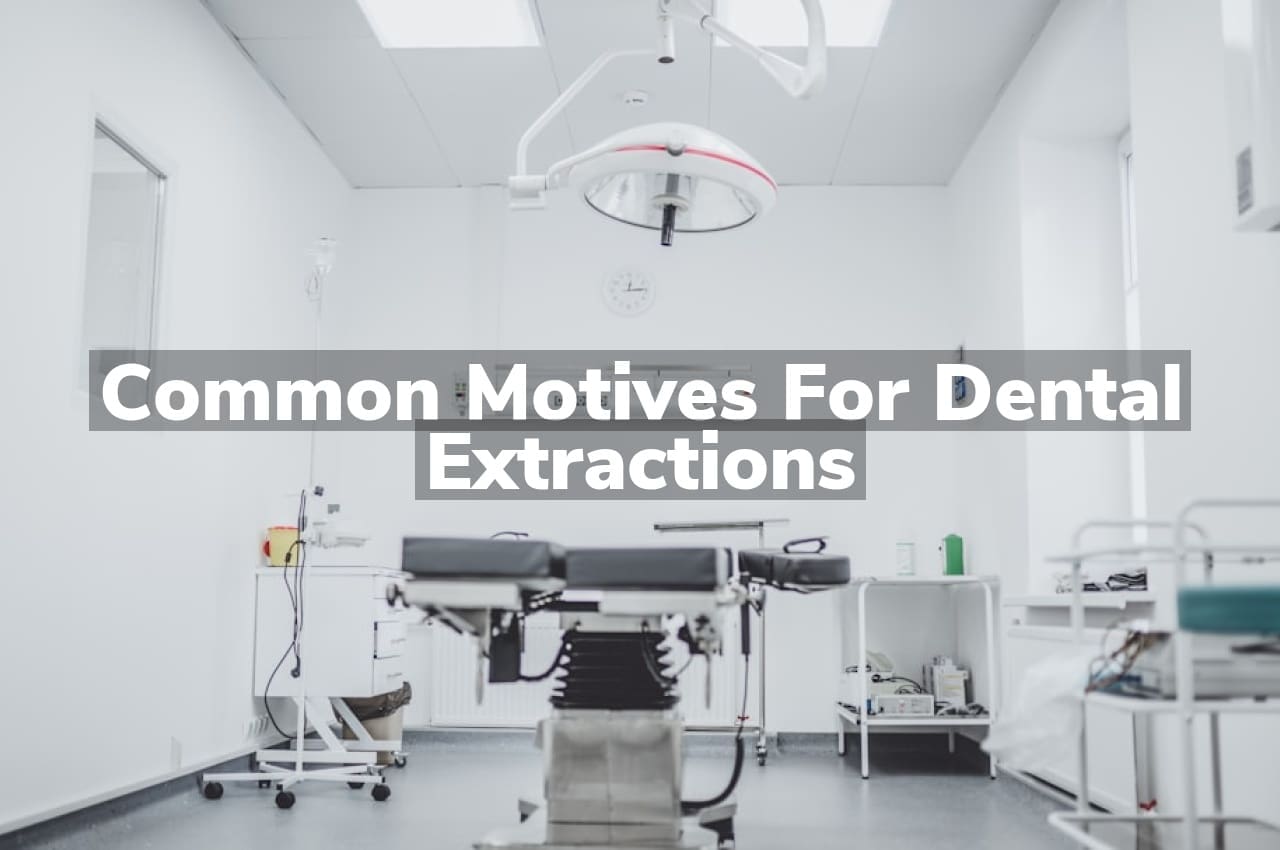Why do people commonly undergo dental extractions? Dental extractions are often performed due to reasons such as severe tooth decay, infection, or overcrowding in the mouth. These procedures are aimed at alleviating pain, preventing further oral health issues, and improving overall dental wellness.
Severe Tooth Decay or Damage
Severe tooth decay or damage is one of the primary reasons why dental extractions become necessary. When a tooth is significantly compromised, it can lead to discomfort, pain, and even affect the overall health of the mouth. The progression of tooth decay can erode the enamel, allowing bacteria to infect the inner parts of the tooth, which might result in the need for its removal. Similarly, physical damage from trauma can fracture a tooth beyond repair. In such cases, extraction is considered to ensure the health of surrounding teeth and tissues.
The decision to extract a tooth due to severe decay or damage is not made lightly. It often comes after considering the extent of the issue and the potential impact on the patient’s oral health. The Evolution of Dental Extraction Practices has significantly improved the methods and reasons for extractions, focusing on patient comfort and long-term oral health outcomes. Understanding the common motives behind dental extractions, such as severe tooth decay or damage, helps in appreciating the importance of maintaining good oral hygiene practices and regular dental check-ups.
Impacted Wisdom Teeth Issues
Impacted wisdom teeth are a common reason for dental extractions, affecting a significant portion of the population. These teeth, also known as third molars, are the last to emerge in the mouth, usually during late adolescence or early adulthood. However, due to lack of space in the jaw or misalignment, they may not erupt properly and become impacted. This can lead to a variety of problems, including pain, infection, damage to adjacent teeth, and other dental issues. The complexity of impacted wisdom teeth issues stems from their location in the back of the mouth, making them more challenging to clean and susceptible to decay.
The decision to remove impacted wisdom teeth is often made to prevent potential complications and maintain oral health. While the thought of tooth extraction can be daunting for many, advancements in dental techniques have made the process more manageable. For those seeking a comfortable experience, Painless Tooth Removal in Monrovia is available, ensuring that patients receive the care they need with minimal discomfort.
Orthodontic Treatment Preparation
When considering the journey towards achieving a perfect smile, orthodontic treatment often plays a pivotal role. However, before embarking on this path, certain preparatory steps may be necessary to ensure the best possible outcome. One common motive for dental extractions is to prepare the mouth for orthodontic treatment. This process involves creating enough space within the mouth to correct misalignment and overcrowding of teeth. By doing so, orthodontists can more effectively guide teeth into their ideal positions, contributing to both the functionality and aesthetics of one’s smile. This preparatory step is crucial in laying the foundation for a successful orthodontic treatment plan.
Periodontal Disease Complications
Periodontal disease, commonly known as gum disease, is a significant health concern that can lead to various complications if not addressed properly. This condition is characterized by the inflammation and infection of the gums, which can eventually affect the bone that supports your teeth. One of the severe outcomes of untreated periodontal disease is the necessity for dental extractions. As the disease progresses, it can cause the teeth to become loose or severely damaged, making extraction the only viable option to prevent further oral health issues. Understanding the implications of periodontal disease is crucial for maintaining overall dental health. For those seeking professional dental care, Monrovia Dentist at Healthy Life Dental is available to assist with a wide range of dental health needs.
Risk of Infection Management
Managing the risk of infection is a primary motive for dental extractions. When a tooth becomes severely infected, it can jeopardize not only the health of the surrounding teeth but also the overall well-being of an individual. Infections in the mouth can spread, leading to more serious health issues. Dental professionals assess the risk of infection based on the condition of the tooth and the patient’s oral health history. In cases where the risk is deemed high and other treatments are unlikely to resolve the issue effectively, extraction may be considered as a means to prevent the spread of infection and protect the patient’s oral and overall health.
Conclusion
Understanding the common motives for dental extractions is crucial for maintaining oral health. For further inquiries, call us at 626-256-3368 or read our reviews on Google Maps.





